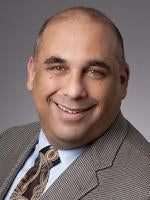As we discussed in our April 27, 2020 blog post, nursing homes have become the focus of significant attention during the COVID-19 crisis. In many respects, the attention is well deserved:
-
Nursing homes traditionally serve seniors who often struggle with chronic health conditions. As a result, nursing home residents are particularly vulnerable to coronavirus infection due to both their age and health status;
-
Nursing homes residents are highly interactive with each other. The close proximity of nursing home rooms/beds and the personal relationships often formed among nursing home residents make social distancing hard to maintain;
-
In order to relieve pressure on hospitals that need to reserve their beds for the most acute COVID-19 patients, nursing homes are under significant pressure to accept COVID-19 patients who have been discharged from hospitals because they no longer require an acute level of care but still may be symptomatic and require isolation and treatment; and
-
Most importantly, the above three factors and others have turned many nursing homes across the country into hot spots for coronavirus infection and, in some cases, COVID-19 fatalities. Overwhelming data as to the dangers found in nursing homes is highlighted in the blog article referenced above.
Because of the inherent vulnerability of nursing homes and other healthcare facilities to coronavirus infection and COVID-19 coupled with the need for such facilities to accept COVID-19 patients and, in turn, act as pressure valves for high-acuity providers like hospitals, the federal and state governments have moved to insulate nursing homes and other healthcare facilities from civil (and sometimes criminal) liability claims that relate to their providing care in response to the COVID-19 pandemic.
In addition to state and federal efforts to provide liability waivers for nursing homes and other providers, there has been a concomitant push to increase nursing home oversight and enforcement. The focus on oversight and enforcement can best be seen at the federal level through actions taken by the Centers for Medicare and Medicaid Services (“CMS”) and the U.S. Department of Justice (“DOJ”). On the state-side, announcements and executive orders issued by multiple governors and state attorneys general provide evidence that liability protections may come at a price.
Federal Oversight and Investigation
Federal interest in the investigation of nursing homes and other long term care facilities during the COVID-19 health emergency is evidenced by a number of initiatives being undertaken by multiple federal agencies.
The Department of Justice. Although the DOJ has seemed particularly focused on the financial aspects of the various loans and other programs designed to provide economic relief to businesses who have suffered from the healthcare crisis, the DOJ also has a history of enforcement in the areas of long-term health and nursing home care.
In a March 3, 2020 DOJ Press Release, the DOJ announced its implementation of a National Nursing Home Initiative (the “Initiative”) to, “coordinate and enhance civil and criminal efforts to pursue nursing homes that provide grossly substandard care to their residents.” Although the Initiative was not initiated as a direct response to COVID-19 and the pandemic’s seemingly disproportionate impact on nursing homes, the Initiative’s focus on substandard long-term care facilities including nursing homes that are unable to, “adhere to basic protocols of hygiene and infection control” puts the Initiative directly in line with the investigatory priorities of other federal agencies including the U.S. Department of Health and Human Services’ Office of Inspector General (“OIG”) and CMS. Therefore, nursing homes and other long-term care facilities should expect the Initiative to focus resources on facilities with significant and uncontrolled outbreaks of COVID-19.
The Office of Inspector General. On an annual basis, the OIG issues a Work Plan that catalogues the OIG’s various audit and investigative priorities for the upcoming fiscal year. The Work Plan I carefully watched by the healthcare provider community as a guide to where the OIG will be focusing its time and attention in the months ahead.
Although the Work Plan is usually issued in October, the OIG has the ability to make updates throughout the year. Most recently, the OIG updated its current Work Plan on March 3, 2020 in response to the COVID-19 pandemic. As a result of this latest update, the OIG Work Plan now includes “Medicaid Nursing Home Life Safety and Emergency Preparedness Reviews” as a priority for the OIG Office of Audit Services. As described by the OIG, the focus on nursing home compliance with life safety and emergency and infectious disease control preparedness is necessitated by the vulnerability of the patient population in long-term care facilities to COVID-19. By updating its Work Plan, the OIG is putting nursing homes and other long term care providers on notice that they may be coming under scrutiny in the not-to-distant future as to their policies, procedures, and practices in the areas of infection control and emergency preparedness.
Centers for Medicare and Medicaid Services. As further evidence of its intent to focus its efforts on the conduct of targeted infection control surveys of Medicare and Medicaid participating providers, CMS, in a March 20, 2020 CMS Letter to State Survey Agencies, announced that it had developed with the CDC a “COVID-19 Focused Survey for Nursing Homes” (the “Survey”) to be used by federal and state inspectors when conducting targeted infection control surveys of long-term care facilities. The Survey, which can be used by providers as a self-assessment tool, advises inspectors as to where to focus their efforts when evaluating a long-term care facility’s infection control practices. For example, the Survey suggests that inspectors focus their attention on resident care and placement, infection prevention and control standards, infection surveillance, visitor entry, and education, monitoring, and screening of staff.
State Oversight and Investigation
As noted above, while some states are shielding nursing homes from civil liability for their efforts to respond to the current state of emergency, many of these same states are increasing their investigatory and enforcement activities to identify and sanction nursing homes that are in violation of recent federal and/or state actions taken in response to the COVID-19 pandemic.
As we described in our April 27, 2020 blog post referenced above, both New York and New Jersey have extended liability protections to healthcare facilities responding to their respective state’s healthcare crisis. At the same time, both New York and New Jersey have committed significant resources to pursuing the nursing home industries in their states.
NEW YORK. New York passed the Emergency Disaster Treatment Protection Act on April 3, 2020 in which the state’s nursing homes and other facilities were given immunity to civil and criminal liability for their provision of patient care services pursuant to a COVID-19 emergency rule.
This grant of immunity was followed by an April 23, 2020 announcement by New York Governor Andrew M. Cuomo in which he declared that New York nursing homes are now required to report to the New York Department of Health (“DOH”) regarding the actions that they have taken to comply with all COVID-19 related laws, regulations, directives and guidance issued by DOH and the Centers for Disease Control and Prevention (“CDC”). In addition, Governor Cuomo stated that DOH and the Office of Attorney General are partnering to investigate nursing home violations including (i) violations of Executive Orders requiring nursing homes to communicate COVID-19 test results and deaths to residents’ families, and (ii) violations of those same DOH and CDC laws, regulations, directives and guidance that nursing homes are now obligated to report. When investigating nursing home compliance, DOH is intending to focus on separation and isolation policies, staffing policies, and the proper use and sufficiency of personal protective equipment. If DOH determines that a nursing home is out of compliance, DOH will immediately require that the facility submit a corrective action plan to DOH. In addition, the facility may be subject to a $10,000 fine per violation or potentially lose its operating license – both possibilities being within the DOH’s discretion.
NEW JERSEY. On April 14, 2020, New Jersey passed legislation that provides healthcare facilities with immunity from civil liability related to injury or death caused in the course of “providing medical services in support of the State’s response to the outbreak of coronavirus” during the state of emergency.
In a May 5, 2020 news conference, New Jersey Governor Phillip D. Murphy and New Jersey Attorney General Gurbir S. Grewal announced that the Attorney General’s ongoing nursing home investigation (which was first announced by the Attorney General in an April 16, 2020 Statement) would be widened to include all New Jersey long-term care facilities that have experienced what Governor Murphy called a “disproportionate number of deaths.” In addition, the Governor and the Attorney General reiterated their commitment to take aggressive enforcement action and “hold people accountable if anything criminal happened.” As described by Attorney General Grewal during the news conference, the investigation remains in its early stages and facts are being gathered. Finally, Attorney General Grewal invited the public’s help to participate in the investigation by sharing information. “If you have first-hand knowledge of illegal activity or other misconduct at a long-term care facility or in this industry during the pandemic or before, please let us know,” he said. “We’ve created a reporting portal at covid19.nj.gov/ltc.”




 />i
/>i
